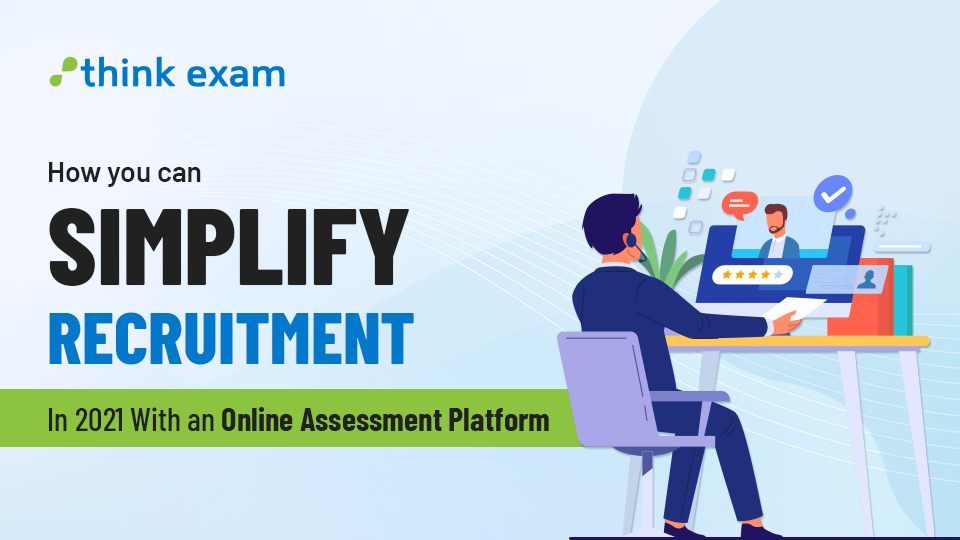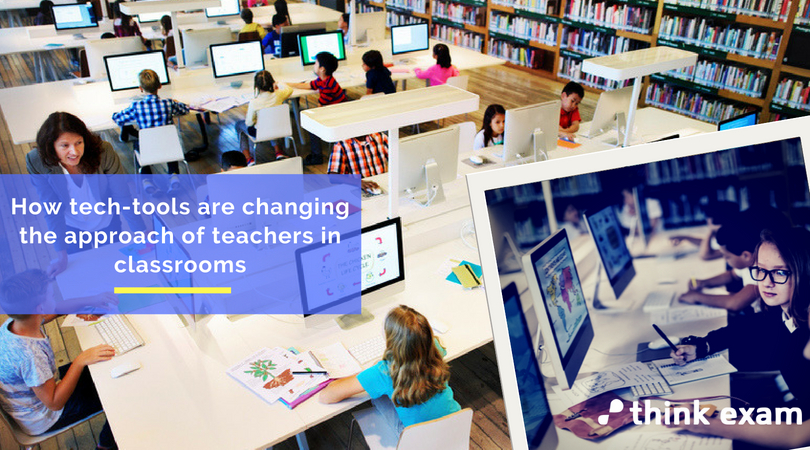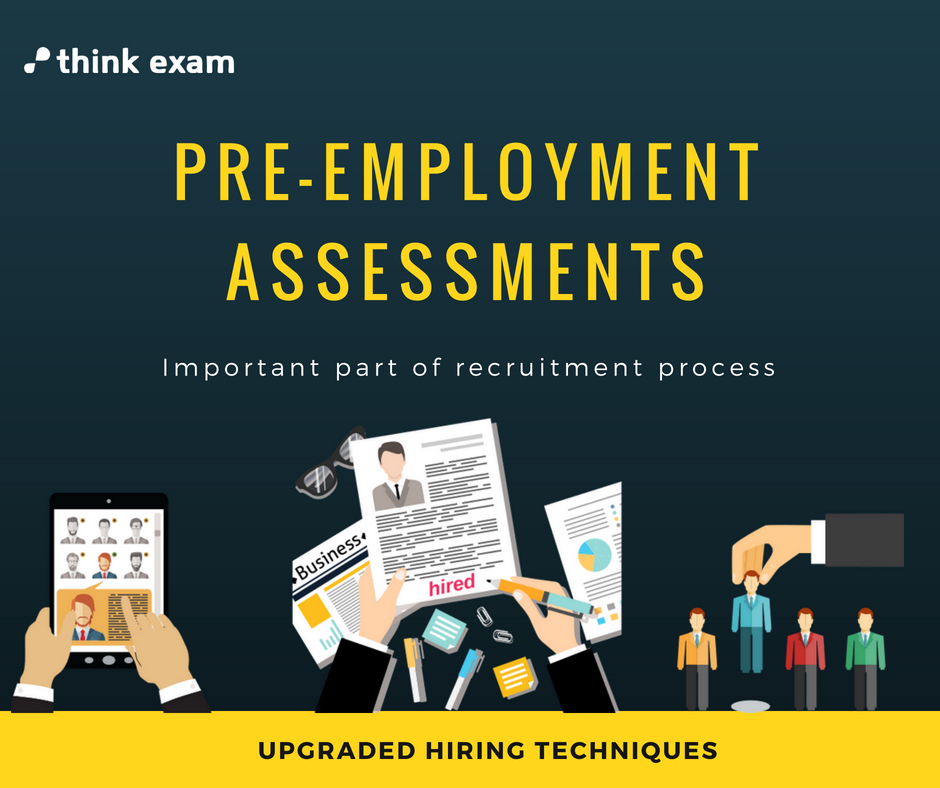In today’s rapidly changing business landscape, organizations need to have a future-ready workforce that has the required skills and competencies to drive growth. With technologies and markets evolving at a quick pace, jobs are also transforming, requiring employees to constantly learn new skills. This makes having the right talent even more critical for organizational success. This is where using an online assessment platform can play a strategic role in building workforces for the future.
What are talent assessments?
Talent assessments, also known as pre-employment tests, are tools used by employers to evaluate candidates during the hiring process. These assessments measure skills, abilities, knowledge, personality traits, emotional intelligence, and aptitudes that are key predictors of success for a given role. Talent assessments provide data-driven insights that enable organizations to make informed talent decisions based on candidate potential rather than just qualifications or experience. The data and analytics provided by talent tests can help significantly strengthen the quality of hire and reduce attrition by establishing a stronger skills-to-role match. Assessments add quantitative rigor to the candidate selection process, enabling more consistent, unbiased screening across the recruitment funnel. Avoiding ‘gut feel’ hiring choices and relying on an online assessment platform for talent analytics can help discover applicants with the optimal leadership capabilities or soft skills.

Types of Talent Assessments
There are different types of talent assessments used by organizations:
- Cognitive Ability Tests: These tests measure numerical, verbal, and logical reasoning abilities that are good indicators of how fast candidates can be trained for a job. They provide insights into how quickly someone can learn, adapt to new situations, and solve problems. Some common cognitive tests include abstract reasoning tests, verbal comprehension tests, numerical reasoning tests, and logical reasoning tests.
- Skills Tests: Skills tests evaluate hard and soft skills required for the job like accounting, data analysis, project management, etc. They assess if the candidate has the technical skills to perform the duties of the job opening. For example, for a software developer role, skills tests would include tests on programming languages like Java, Python, SQL queries, etc.
- Personality Tests: These provide an understanding of the candidate’s behavioral traits and how they would fit with company culture and values. Some personality tests like DISC and Myers-Briggs indicate work style preferences and temperaments. Others like emotional intelligence assessments provide insights into social and self-awareness.
- Emotional Intelligence Tests: Measures levels of emotional intelligence, including self-awareness and relationship management skills. These tests are helpful to assess how empathetic, influential, and effective a candidate can be in relationship-building. Leadership roles often require higher emotional intelligence.
In addition to these, there are also custom simulation tests, work samples tests, integrity tests, and culture fit assessments. The talent assessments used depend on the skills, qualities, and traits critical for success in the target role. Assessments can be administered online via talent measurement platforms or done in person by recruiters and hiring managers as well. Effective talent testing improves the quality of hire and retention.
Talent assessments for building a future-ready workforce
With business strategies now revolving around concepts like digital transformation, automation, and artificial intelligence, building adaptable and skilled workforces has become key to organizational success. Some ways talent assessments can help in this are:
Identifying high-potential candidates
Organizations can use an online assessment platform to create targeted assessments for roles that map capabilities like adaptability, analytical thinking, creativity, etc., which would be important for future high performers. Integrating these in hiring allows the identification of candidates with the potential to take on advanced roles.
Making skilling and training better
Assessments that provide a nuanced analysis of strengths and development areas across skills allow organizations to have personalized learning plans. Any skill gaps identified can be bridged proactively through relevant training programs.
Identifying capability gaps
At an organizational level, talent assessment analytics provide insights into overall workforce capability on key parameters required for future readiness. Any broad gaps can then be plugged into strategic capability development initiatives.
Facilitating internal mobility
Using talent assessments for ongoing measurement of the talent pipeline promotes skills-based internal mobility by matching people to opportunities they will be successful. This allows optimized utilization of workforce potential.
Promoting customized development
Regular skills assessments help gauge the impact of learning programs by benchmarking workforce capabilities over time. This allows refining of development interventions to ensure they remain targeted to business priorities.
Key considerations for using assessments to build a future-ready workforce
While online assessment platform provides rich insights that can strengthen workforce planning and talent decisions, organizations must keep the following in mind:
- Choose job-relevant assessments that map to genuine growth capabilities for the role and industry. Using outdated or irrelevant tests gives information that is not actionable.
- Complement assessments with other evaluation parameters like interviews to provide a balanced view of candidate potential before making hiring decisions.
- Keep checks for biases and ensure a fair chance to diverse candidate profiles while using assessments.
- Use talent assessment analytics responsibly, giving due importance to candidate privacy at all stages.
- Invest adequately in assessor training so recruiters/managers can effectively interpret assessment reports while making decisions.
- Revisit your assessment strategy regularly and make it dynamic to address changing hiring requirements and new capabilities desired by the workforce.
Identify the skill gap in your organization with Think Exam
Think Exam is an advanced online assessment platform that allows organizations to thoroughly evaluate employees’ skills and aptitudes required for current as well as future job roles. Its AI-driven assessments provide predictive insights into workforce capability gaps across critical skills.
For instance, if an organization is gearing up for an expansion plan that would require reskilling employees in emerging technologies, it can leverage ThinkExam to create customized tech-focused assessments. These could test capabilities like cloud computing, data analytics, process automation, etc. Based on assessment analytics, specific skill gaps within the workforce are highlighted. ThinkExam dashboards provide heat maps that categorize proficiency levels, ranging from beginner to expert, making gaps visually evident.
Additionally, the Think Exam enables benchmarking skills against industry standards. So if coding capabilities are lower compared to fintech sector benchmarks, leadership can make informed decisions to upskill developers through bootcamps and certifications. Its dynamic assessments even allow measuring capability improvements over time to gauge progress. This data-backed identification of organizational skill gaps is invaluable for targeted, need-based development that accelerates workforce transformation. With its robust analytics, ThinkExam empowers strategic management of human capital, helping build skilled, adaptive, and future-ready workforces.
Conclusion
The pace of change today necessitates having employees who bring capabilities to adapt flexibly, learn new skills, and prepare for the future of work. When used strategically, talent assessments enable organizations to objectively evaluate potential, facilitate development, and make future-focused talent decisions driving business growth. Technological advancements have made assessments smarter, more efficient, and more accessible through online assessment platforms. Organizations must leverage such solutions along with focusing on assessment result interpretation skills to make talent decisions that fuel their workforce transformation.





